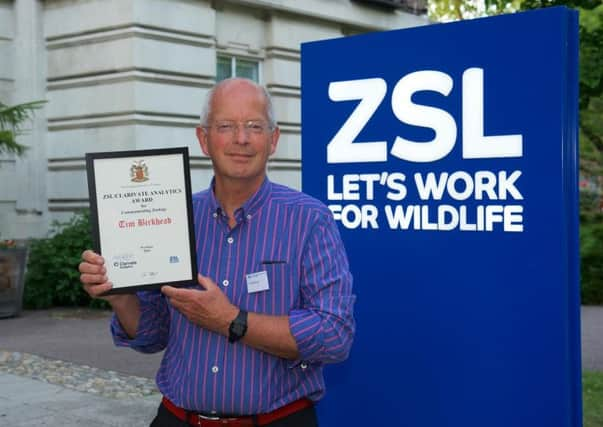Awards for Sheffield professor behind pioneering seadbird studies


Professor Tim Birkhead is credited with broadening modern understanding of seabirds’ behaviour and ecology in his role at Sheffield University’s animal and plant sciences department.
For his tireless dedication to research and teaching he has been presented with two prestigious awards, one from the Zoological Society of London and the other from the Society for the Study of Evolution.
Advertisement
Hide AdAdvertisement
Hide AdFrom the latter, Prof Birkhead received the Stephen Jay Gould Prize for his long-term, pioneering study of the guillemot population on the island of Skomer in Wales which he began in 1972.
During the project, the Professor created innovative ways to conduct a census of guillemots, a feat which had never been tried before. By marking birds individually with colour rings, he was also able to measure their breeding success, see how old they are when they first breed and see how long the birds live.
Prof Birkhead has also been presented with the Clarivate Analytics Award for Communicating Zoology for his latest publication, ‘The Most Perfect Thing: Inside (and Outside) a Bird’s Egg’. He uses the book to explain how the egg is a perfect survival capsule - an external womb - and the publication was shortlisted for last year’s Royal Society Insight Investment Science Book Prize. It was also listed as one of Forbes’ Best Books About Birds and Birding in 2016.
Prof Birkhead said: “I am delighted to receive these awards - it is such an honour.
Advertisement
Hide AdAdvertisement
Hide Ad“The best part of my job is working with budding young scientists who clearly have a passion for zoology and are so enthusiastic to learn more about the animals and plants that share our planet.
“Science is such an important subject and as academics, researchers and teachers we have a responsibility to ignite that passion to learn about our world and how we can help to protect it for future generations.”